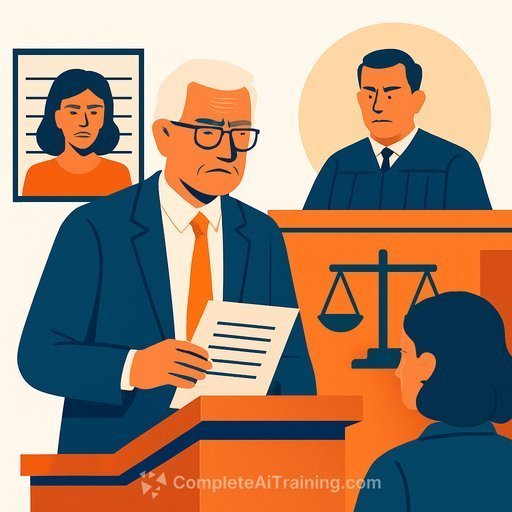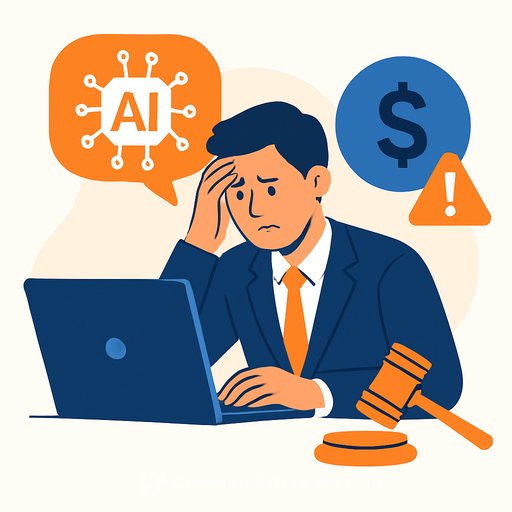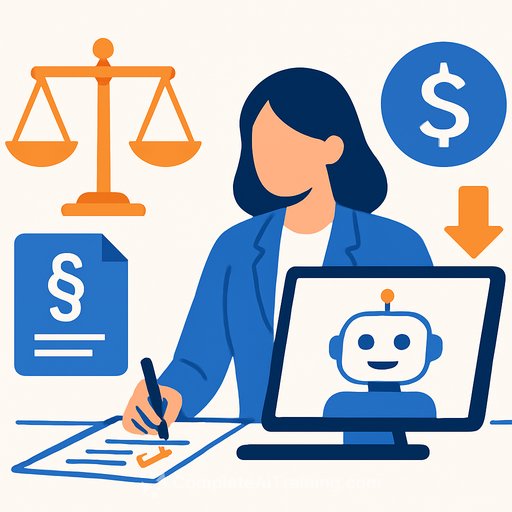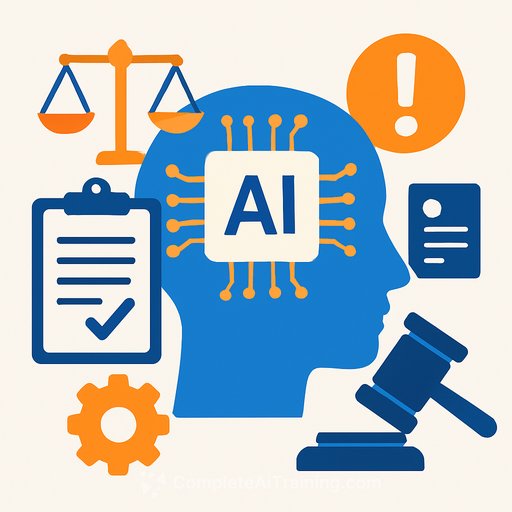Judge Rebukes Attorney for AI-Generated Citations in Kluwe-Epting Defamation Case
A U.S. District Court judge in Santa Ana pressed defense counsel over the misuse of artificial intelligence in court filings, after briefs cited cases that did not exist. The hearing stems from former NFL punter Chris Kluwe's defamation suit against writer Chris Epting and related claims tied to Kluwe's dismissal as a high school coach.
Judge Fred Slaughter called the conduct "unacceptable," warning that attorneys must verify any AI output against primary sources before filing. "There's no excuse for this," he said, later describing AI as a "game of telephone."
What prompted the rebuke
William J. Becker Jr., defending Epting, conceded his briefs included fictitious authorities and apologized. He attributed the error to limited resources and haste, saying he was "fairly ashamed" and had "failed" his client.
Opposing counsel Daniel Sasse said the filings cited three cases that do not exist and contained 22 incorrect citations. Judge Slaughter emphasized he does not use AI and relies on his own research.
Sanctions on the table
When asked what sanction he believed was appropriate, Becker said monetary penalties were not warranted, arguing that the public admonishment was punishment enough. The judge pushed back: "So zero is the answer?"
The court took the matter under advisement. No ruling on sanctions has issued yet.
The underlying dispute
Kluwe alleges he was fired from his coaching role at Edison High School after a civil disobedience arrest during a Huntington Beach City Council meeting, where he protested a proposed "Make America Great Again" plaque for the city library. He claims Epting framed one of his posts as advocating violence, which he denies.
Kluwe's counsel argues his speech is protected by the First Amendment, even as an at-will employee, and that social media criticism fueled the termination. The school district, represented by attorney Mark Bresee, moved to dismiss on immunity grounds and argued Kluwe publicized the reasons for his termination, undercutting any liberty-interest claim.
Key legal issues flagged by the court
- Authenticity of citations: Filing fake or unverified cases undermines the court's reliance on precedent and invites sanctions under standards akin to Rule 11 obligations.
- Defamation vs. opinion: Whether Epting's characterizations of Kluwe's posts are actionable statements of fact or protected opinion.
- Public employment and speech: How school policies interact with First Amendment protections for an at-will coach, and whether the stated reasons for termination hold up.
- Governmental immunity: Whether the district is shielded from suit at this stage.
Practical guardrails for lawyers using AI
- Verify every case, statute, and quote using primary sources (official reporters, Westlaw/Lexis, court sites). Do not rely on AI for final cites.
- Run a second-source check on citations and parentheticals; confirm docket numbers, jurisdictions, and procedural posture.
- Keep an AI-use log: prompts, outputs, and the human verification performed. You may need it if the court asks.
- Adopt a written firm policy on AI: approved tools, no confidential data without safeguards, and mandatory source checks.
- Disclose AI assistance where a court's rules or standing orders require it. When in doubt, ask chambers or err on transparency.
- Train staff and associates on common AI failure modes (hallucinated citations, fabricated quotes, wrong jurisdictions).
- Anchor arguments in the record and binding authority first; use AI, if at all, for brainstorming, not for citations.
For context on sanctions duties in federal court, see Federal Rule of Civil Procedure 11.
If your organization is formalizing AI training for legal teams, here's a curated index by job role: Complete AI Training: Courses by Job.
What's next
Judge Slaughter said he will issue a ruling later on both the sanctions issue and the pending motion to dismiss. For practitioners, the message is clear: if AI touches your work, you still own every word, every cite, and every representation to the court.
Your membership also unlocks:






